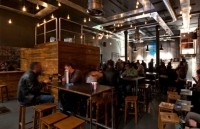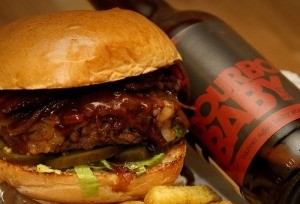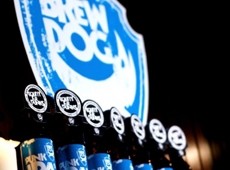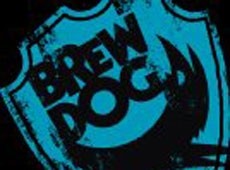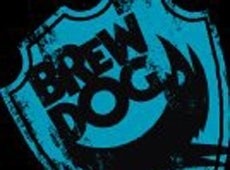Beer special
'Will BrewDog ever do a Meantime? No.'...Interviewing James Watt
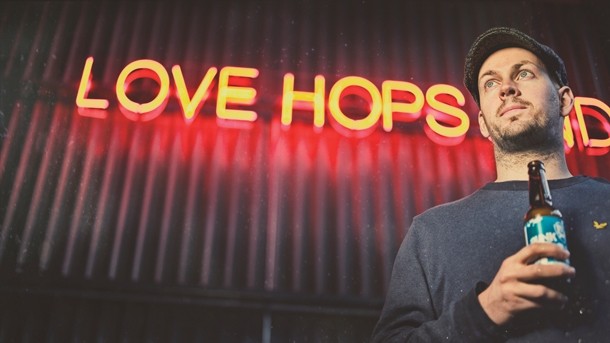
When it comes to PR stunts, there are fewer better at creating attention than those BrewDog boys. And, as the hurling of stuffed cats out of helicopters over the unsuspecting city of London earlier this year demonstrated, they remain every bit as irreverent and confrontational as when they emerged on to the brewing scene back in 2007.
“The stunt involved a mixture of soft toys and stuffed cats,” says co-founder James Watt when we meet at the brewery in Ellon, a busy, buzzing site to the north of Aberdeen.
“We wanted to make a point about the city and the fat cats whose activities have helped to give rise to the global industrialisation of beer in the past 50 years.”
According to Watt, who runs BrewDog with co-founder Martin Dickie, the feedback was great, both on social media and from the press.
“After driving a tank past the Bank of England in 2013, people did wonder what we could do to top that. I think dead fat cats with parachutes did the trick. Maybe we’ll go seaborne next time, or use a hot air balloon.”
Clearly then, and despite plans for a new £25m brewery and a growing empire of bars that now reach as far as Sao Paulo and Tokyo, Watt wants BrewDog’s personnel to continue to be seen as the hip young gunslingers that gained fame, and notoriety, for taking pot-shots at every brewing target they could get in their sights.
From the start, they courted controversy with a series of statements, such as declaring the British beer scene was sick and they were the doctor. While this approach has had its critics, it’s hard to dispel the fact BrewDog has gone on to energise and influence a generation of beer lovers, bar runners and breweries.
At Ellon, work is already under way on the brewery, which will complement the current site in Fraserburgh. There are plans for a distillery and the barrel-ageing programme will be expanded.
When the new site opens, BrewDog estimates it will be able to produce an annual capacity of 400,000 hectolitres (about 245,000 barrels). There are also plans for a brewery in the US, with a choice to be made between two sites. That’s a lot of beer, and it all has to be paid for, which is where the crowdfunding scheme Equity for Punks (first launched in 2010) comes in.
“Equity for Punks has multiple facets, which makes it so engaging,” says Watt. “We have shown with #Mashtag, our AGM, our social media activity and pretty much all we do that we value everyone who drinks a BrewDog beer.
“We don’t pay lip-service to our customers. We’re indebted to everyone who buys our beer or invests in us, and we ensure that our gratitude is evident in all that we say and do.”
Watt believes people understand and feel this, and want to be part of the next chapter of BrewDog and the craft beer revolution.
“On a more practical level, the awareness of crowdfunding and alternative investment models has increased during the past few years and what we’re seeing with it is a manifestation of that trend. Our plan is to hit £25m. We’ve been blown away with what we’ve managed to raise so far — £5m in less than three weeks is no mean feat.”
Alongside the expansion of its brewing facilities, there has been an equally vibrant growth in BrewDog’s bars, where old favourites such as Punk IPA and Hardcore IPA are dispensed alongside debutants such as the intensely flavoured Double IPA Born to Die and the more delicate but hoppy summer ale Deaf Mermaid.
The first bar was in Aberdeen, a high-ceilinged city centre space that continues to be popular. However, there are now at least 20 throughout the UK (plus a number across the world) with more to come. Doubters may scoff and mumble about hipsters, but regulars cannot help but be struck by the diverse range of customers, from tattooed hipsters to grizzled real-ale veterans. A licensee’s dream.
“We have identified 10 sites across the UK where we are going to open a bar,” explains Watt. “The one we have planned for Soho is going to be a game-changer, it’s right on Poland Street and it will be very vibrant, modern and diverse. The customer profile in Soho is unlike anywhere in London but we’re ready for the challenge. It’s going to be epic.
“Then there is Glasgow Merchant City, which is in a super-cool location and will be our second bar in the city. We will have a different concept for this, which we’ll reveal in good time.
Watt says he is talking about other ways of getting craft beer into people’s hands beyond a bar.
“We are constantly striving to evolve the concept and develop new ways to provide an environment in which to enjoy incredible beer from around the world that doesn’t rely on tried and tested, and often tired, models. The craft beer hotel plan is one such example,” he adds.
Ah craft beer, the elephant in the room, the worm in the apple. Since 2007, BrewDog has never shied away from using the term, however fuzzy the definition. In 2014, I visited the brewery with a group of writers and Watt mused aloud to us on how to define craft beer.
One writer remarked: “I think the horse has left the stable,” which seems to accurately sum up the British dilemma. Watt, on the other hand, remains keen to saddle up. BrewDog, along with Camden Town, Magic Rock and Beavertown, recently announced the setting up of the United Craft Brewers Association.
“The UK craft beer industry needs a supporting body that aims to promote and protect our breweries and craft beer drinkers,” he says. “None of the established organisations out there did the trick so we put our heads together and formed the alliance. We recognise the threats our businesses face and, collectively, we can pre-empt them and ensure we are securing our future and that of other fledgling breweries.
“Firstly, we need the involvement of other breweries. There is no point in us sitting back and pointing fingers, shaping the industry on our own terms. We need the input and membership of other breweries, and the support of craft beer drinkers, to make it a viable and useful concept. We have had an incredibly positive response so far, so we are confident we’ll be able to make a marked difference for ourselves and our peers.”
BrewDog does not always get it right, but talking with Watt you get the feeling of a dynamic personality eager to keep pushing the brewery’s ethos forward, to involve and excite people in beer, to keep growing and, perhaps, leave a historical marker. The feeling in the licensed trade might be mixed, but BrewDog has been a force for good.
Then there’s the future. When I was at the brewery in May, Watt held an informal chat with a group of writers on the day the news of SAB Miller’s acquisition of Meantime had broken. The question was asked — would BrewDog ever ‘do a Meantime’?
The reply was two words, quick and succinct. One is unprintable but the other isn’t — it was “no”.

